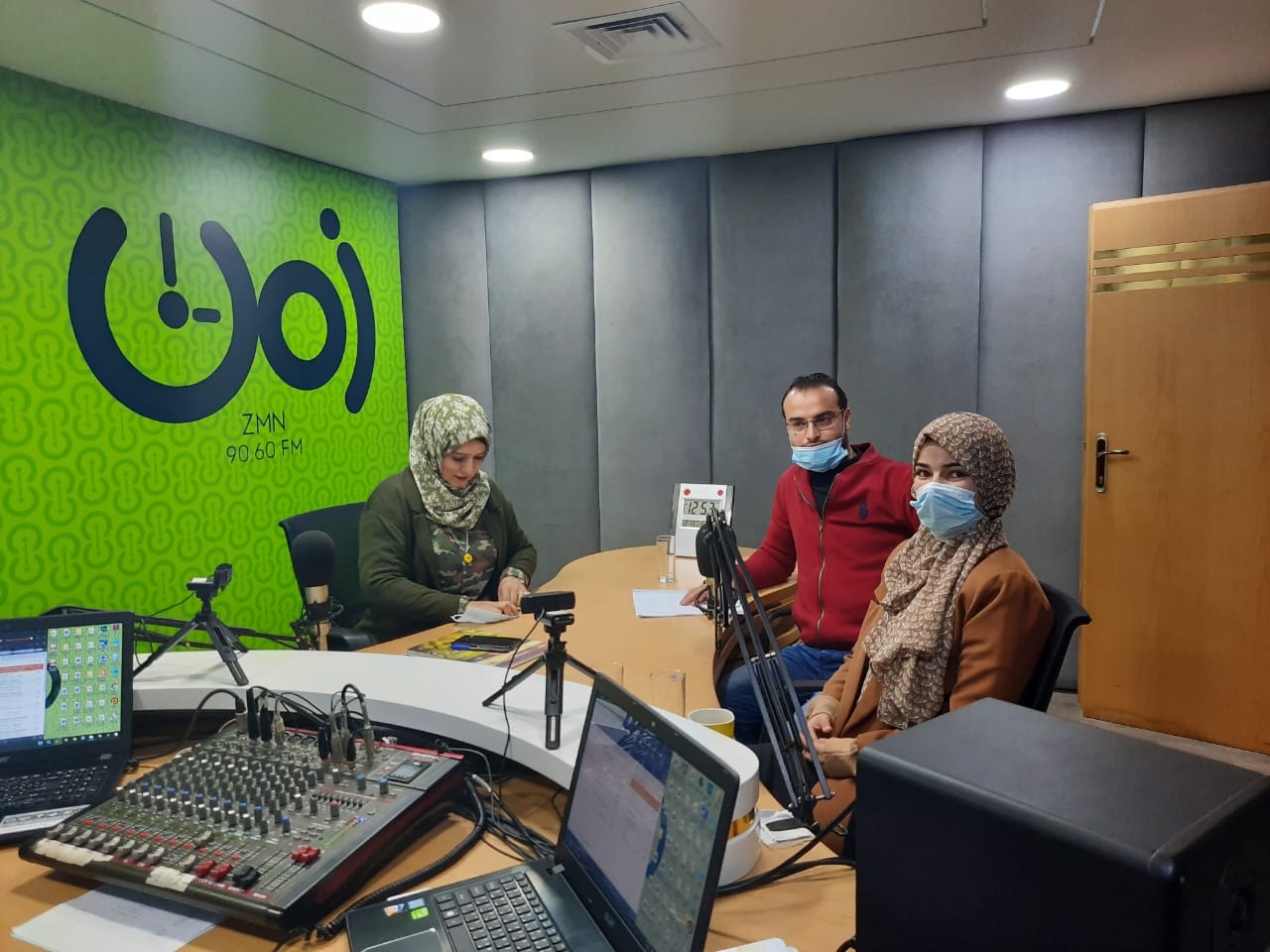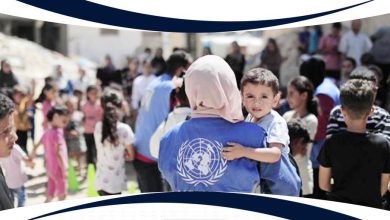Fifth Episode: The Consequences of Corona for Women’s Psychological Support

Since the beginning of 2020, institutions that provide psychological support to women have adapted the way they serve women and men, replacing face-to-face meetings with the phone and the Whats and Zoom applications. For example, the Palestinian Ministry of Health provided some 60,000 counselling to a beneficiary during the pandemic, while 256,565 men/women benefited from the Gaza Mental Health Program’s free line.
A research paper entitled The Consequences of Corona pandemic on Women’s Psychological Support in Gaza Strip was discussed on the Youth Creativity radio program. The paper was prepared by the researchers Ahmed Al-Sammak and Mona Al-Msaddar, within Young Gender- Equality Research Chapter’s Project, which is carried out by Pal-Think for Strategic Studies and funded by the Government of Canada.
Ms Thani Qassem, the coordinator of a life centre for the protection and empowerment of women and families, said that the residents of the Gaza Strip are suffering from considerable stress due to the occupation and the high unemployment rate. Then she added that the crisis was aggravated by the virus, which placed women under an additional burden, and thousands of women were subjected to various types of violence, notably psychological violence, during the period of domestic quarantine, which had negative consequences for women, the family and society.
She noted that since the beginning of 2020, women’s and international centres had begun to prepare an emergency plan to work during the Corona pandemic, to continue to provide psychosocial and legal support services to women.
She further stated that they had provided about 5,000 legal, psychological and social consultations during the pandemic, and they had received 14 women who needed protection and risk-threatening protection with their children.
The researcher Ms Mona Al Msaddar said that this paper discusses the impact of Corona’s pandemic on women’s psychological support, as well as the impact of social distancing and safety measures on their own. Then she stated that the paper follows both quantitative and qualitative approaches.
Al Msaddar pointed out that community stigma and economic realities were among the most prominent challenges to providing psychosocial support before the pandemic. While the presence of the men in the home, the inability of women to leave the home to go to institutions for psychological support, and the lack of having a phone by some of them were the most important impossibility that prevented them from getting psychological support.
She also explained that there are government institutions that provide psychological support such as Ministries of health, education, social development, and other non-governmental organizations such as Gaza Community Mental Health Program, Aisha for Mother and Child Protection Society, Women’s Affairs Center, Culture and Free thought Society.
She noted that anxiety and depression are among the most psychological disorders that appeared during the pandemic.
The researcher Mr Ahmad Al-Sammak said that one of the most important challenges facing institutions on providing its Psychological Support during the corona pandemic is the job pressure on the Ministry of Health and the police that led to the difficulty of immediate coordination in case of the necessary face to face support during the lockdown of difficult cases, and the job burden on the specialists and psychologists. Besides, direct face-to-face treatment in case of service to the transfers is difficult due to the virus precautions.
Then he pointed out that the Corona pandemic had had a negative impact on women. For instance, those with permeability had suffered from community stigma and bullying, and domestic quarries had increased their differences with the husband, as well as increased violence against them. Not to mention the increasing burden of women due to household tasks, childcare, and distance learning.
Al-Sammak concluded the findings of the research paper. Increasing psychological pressure and social roles for women, and the pandemic and the lockdown policy contributed to the aggravation of violence against women and their weak protection because of the near suspension of formal and informal institutions.
“The designations employed and the representation of material in this program do not imply the expression of any opinion whatsoever on the part of the Government of Canada.”






